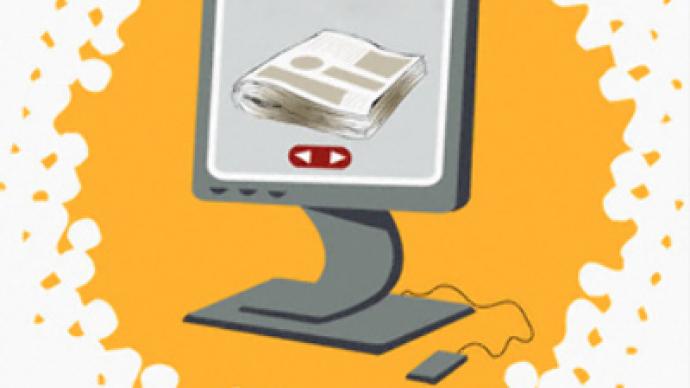The dawn of a new age of muckraking

In these rapidly changing times, technology is playing a key role in democratizing the most important function in our society: the dissemination of information.
By Luke Rudkowski
Today, talking heads, corporations, governments, editors and publishers no longer make the definitive judgment on what is news and what is not. More than 100 years after Upton Sinclair wrote his muckraking book “The Jungle,” the tradition of muckraking has a new life on the Internet.
Sinclair set out on a daunting task: to infiltrate the meatpacking industry in Chicago. He took months off from work and immersed himself in the business, working undercover to expose the gross mistreatment of workers. Sinclair gave vivid details about immigrant life in Chicago, depicting poverty and homelessness and exploitation by the powerful.
Today, all it takes to create an expose is a laptop and a camera, or even just a cell phone. Anyone can take video and upload it to YouTube for the world to see. This accessibility opens up the possibility of an uncontrolled flow of information around the world.
The people now have eyes and ears all over the world, and are waiting to broadcast. This gives them an advantage over the mainstream media, which cannot always be at the right place at the right time. This exposure allows humanity to see and understand issues more clearly than ever, as events unfold in front of our very eyes from all perspectives.
The mainstream media occasionally misses big stories that rock society – either by negligence or on purpose – that online activists uncover. For example, in his book “Here Comes Everybody,” Clay Shirky details how bloggers brought down Trent Lott.
“This would have been a classic story of negative press coverage altering a political career – except that the press didn't actually cover the story,” Shirky writes. It was the bloggers that picked up on Lott's racist remarks during his speech at Storm Thurmond's 100th birthday party, which eventually cost Lott his leadership position in the Senate.
Recently, a groundbreaking story coined “Climategate” spread like wildfire through the Internet before making its way into mainstream media. This story concerned emails between scientists who produce studies to support theories of global warming. In the emails, the scientists were openly discussing destroying studies that didn’t support their theories.
This scandal, which was brought to the world’s attention thanks to the Internet, severely damages the validity of the global warming theory. If it weren’t for the Internet, this story might never have seen the light of day.
Major media outlets have not continued the tradition of muckraking for many reasons. It is a lot more efficient for a news organization to keep a reporter in the office writing news stories every day than to send him away for six months on a reporting trip that may only produce three stories.
It also has a lot to do with corporate relations. A news organization run by a corporation does not want to rock the boat and go after other large corporations to which they may have ties. It is impossible for a news agency to report fairly on an issue when their profits are involved. The news programs have been caught many times suppressing stories because their sponsors would be negatively affected by the media attention.
Corporations are only interested in profit and that's why we have seen them forget about muckraking journalism – it is not profitable. Judith and William Serrin said it best in “Muckraking: The Journalism That Changed The World:” “Some publishers and broadcast executives might as well be selling shoes as selling news.”
Today, five corporations control nearly 90 percent of the mainstream media. Almost everything we see, hear or read in newspapers, magazines, books, radio and television is owned by Time Warner, Disney, News Corporation, Bertelsmann or Viacom. The democratization of information via the Internet could not have come at a better time.
The Internet not only allows us a greater and richer perspective on events, but covers events that would naturally be censored by the mainstream media and their corporate interests. It gives activists an opportunity to see, hear and smell for the people, looking out for the masses and at the same time exposing the elite. This threatening wave of truth can not only end the profits of the five information-controlling corporations, but reform and revolutionize society. Once the people fully recognize the potential of this tool to express their grievances, they will be an unstoppable force.
Day by day, more information is controlled by fewer hands – but because of technology, there are no longer any gatekeepers. We are able to get a rich abundance of perspectives and views online that help us grasp and understand important events in our history as they unfold. The Internet has become more effective than traditional media. If a tree falls in the forest and no one is around to hear it, it still makes a sound. With the help of the Internet, today a single isolated tree can make so much noise that the whole world will hear it.
Luke Rudkowski is a social justice activist and a founder of WeAreChange. He lives in New York.











